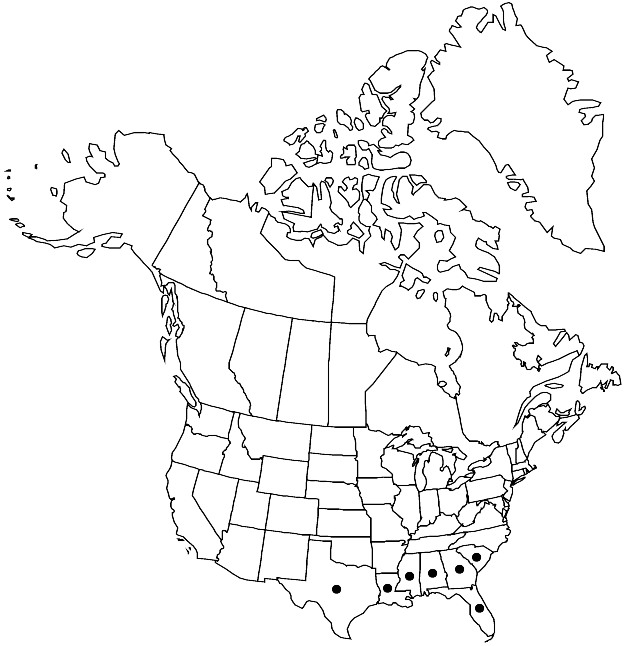Difference between revisions of "Gemmabryum coronatum"
Phytologia 87: 66. 2005.
FNA>Volume Importer |
imported>Volume Importer |
||
| (2 intermediate revisions by 2 users not shown) | |||
| Line 52: | Line 52: | ||
|publication year=2005 | |publication year=2005 | ||
|special status= | |special status= | ||
| − | |source xml=https:// | + | |source xml=https://bitbucket.org/aafc-mbb/fna-data-curation/src/2e0870ddd59836b60bcf96646a41e87ea5a5943a/coarse_grained_fna_xml/V28/V28_210.xml |
|genus=Gemmabryum | |genus=Gemmabryum | ||
|section=Gemmabryum sect. Gemmabryum | |section=Gemmabryum sect. Gemmabryum | ||
Latest revision as of 21:34, 5 November 2020
Plants green or yellow-green. Stems 0.5–1(–2) cm, gemmiform to evenly foliate. Leaves ovate-lanceolate to triangular, weakly concave, 0.5–1.5(–2) mm; margins revolute to mid leaf or beyond; apex acute to acuminate; costa short-excurrent; proximal laminal cells abruptly quadrate to short-rectangular, 1–2:1; medial and distal cells 8–12(–16) µm wide, 3–4:1. Specialized asexual reproduction by leaf axil bulbils, bulbils 1 (or 2) per axil, elongate-ovate, 250–750 µm, primordia present, broadly triangular, acute, arising from just below mid bulbil or near base. Capsule nutant, purple-red at maturity, 1–3(–4) mm; hypophysis strongly thickened, inflated, strongly rugose; peristome well developed; endostome not adherent to exostome, basal membrane high, segments well developed, perforations ovate, cilia long, appendiculate.
Phenology: Capsules mature Apr–Jul (spring–summer).
Habitat: Moist soil, soil over rock
Elevation: low to moderate elevations (0-500 m)
Distribution

Ala., Fla., Ga., La., Miss., S.C., Tex., Mexico, West Indies, Central America, South America, se Asia (including Indonesia), Africa, Pacific Islands, Australia.
Discussion
Gemmabryum coronatum is similar to G. dichotomum but tropical-subtropical to warm-temperate in distribution, with strongly revolute leaf margins and often triangular leaves. Another feature is the strongly thickened hypophysis, almost as though inflated and distinctly rugose, which in G. dichotomum is less thickened and more or less smooth.
Selected References
None.